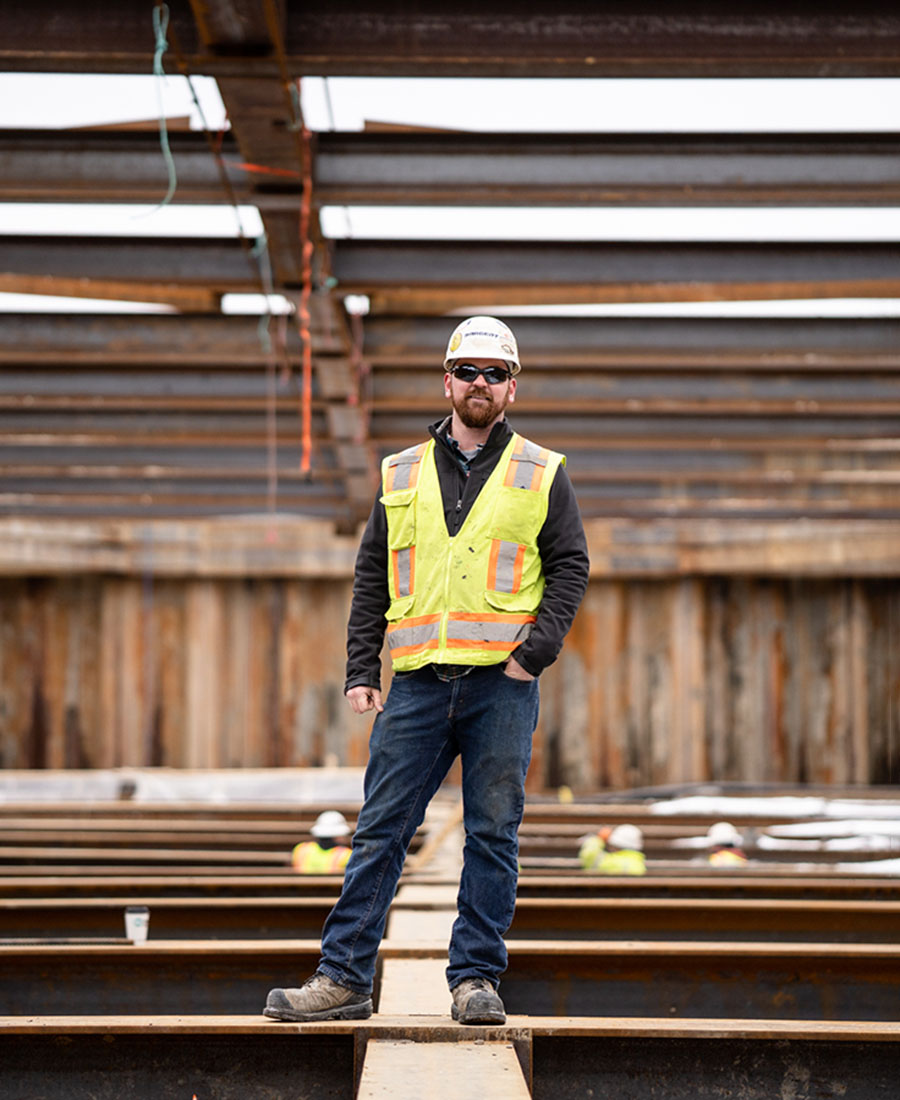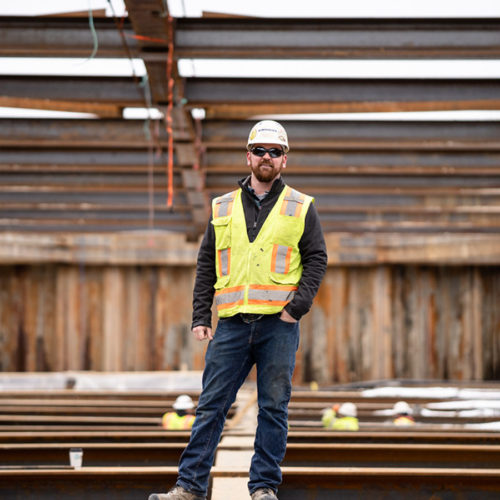

Give a brief description of your career.
I started working for Sargent between my junior and senior year of college as a summer intern (2011). I had previously worked through college and part of high school for a commercial building contractor and before I graduated I wanted to try earthwork to see which path I wanted to pursue. That first year with Sargent, I worked on a couple road projects doing DOT and utility work. I received a full time offer for a junior foreman position once I graduated and accepted.
First year as a full time foreman I worked in Maine and NH on several different projects. The majority of the time was spent on a large substation project in central Maine. I spent the next two seasons working on this same project. Through working with the superintendent I decided I had an interest in the layout foreman position. Moving toward that goal I worked on varying projects from wind, site, road and landfill. I spent one winter in the Mid-Atlantic when work in Maine slowed. Eventually became a layout foreman and was assigned my own projects and survey equipment. I started surveying for varying projects in southern Maine. Once I got some computer experience with AutoCAD and some of the surveying software I went into the office during winter to help the estimating department.
The past two years I took care of the surveying needs in the New Hampshire region. I also acted as a foreman on various projects in general doing mostly earthwork. Currently, I fill the role of field engineer and work on multiple projects in the southern Maine and New Hampshire regions. Starting in February, I was assigned to the Portland Design-Build Back Cove South Storage Facility project as a project engineer. That role includes a little bit of everything including some project management duties, foreman and surveying and so far, has been a good learning experience.
What do you like about your position?
I like the diversity of my work. One of the highlights about the surveying field is that often you’ll be assigned to more than one project. I feel like it allows me to see more of the work we do and be involved with more aspects of the company. In seeing a lot of different types of projects, I get to have more exposure to how other foreman and crews do things and have the opportunity to learn other ways to approach our work.
Name a mentor and what you learned/received for wisdom.
Without any hesitation I instantly think of Tim Lepage. While there have been multiple supers and foreman that have taught me along the way, Tim stands out the most. When I started as a foreman he was the superintendent on my first project. His previous position was a surveyor. I saw and respected his career path and knowledge so I expressed to him that was the route I’d like to take in the company. He allowed me to dabble in the surveyor’s roles, mainly smaller things at first. Tim said he would help me along and teach me what he could but my role was still a foreman first. At first he showed me small chunks of what being a foreman should be and took the time to make sure I was understanding things and looking at the big picture of everything going on with the project. As I progressed he gave me bigger and bigger pieces to take and run with. He did a great job and through a father/son type relationship he helped me elevate my managing and technical capabilities. When I made a mistake, Tim was definitely quick to make sure I was aware of it but also took the time to show me how I could improve and prevent it from happening again in the future. I feel the career path I’m on was made possible by the time that Tim invested in me.
What does being an employee-owner mean to you?
As a result of being employee-owned, Sargent is partly MY company. Employee ownership allows me to have greater pride in the work we execute. All of us share in the victories and shortcomings as a team and company owners. Being an employee-owner means that there is a greater stake and accountability to make sure I do everything in my power so that the victories are more frequent and greater than the setbacks that inevitably happen in our industry. At the end of the day it’s our company, so there are a lot of reasons to try our best and be the best.